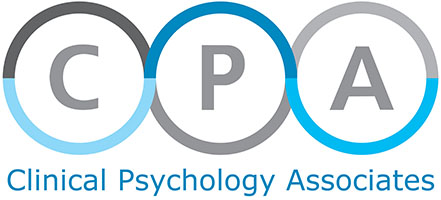Some patients resist taking antidepressant drugs. While we are not opposed to antidepressants, we strongly support our patients’ right to decide their own treatment. What can be done without drugs? The answer is, a great deal can and should be done. And even when you do take antidepressants, it is vital that you use these same tools to assure yourself that you will actually recover. The steps in this handout are also good anti-stress tools, so if you are not depressed but are stressed, these principles are valuable.
Research into depression now shows that antidepressants work, but that just as many people can recover fully without drugs as with them. And natural recovery (psychotherapy) has fewer relapses than drug-assisted recovery. Psychotherapy is the best key to natural recovery, but there are other things you can do. Try these steps:
Go slow! Depression feeds off disappointment; each one of the following activities will probably only give a small result. That is normal. Depression is a battle of gaining inches, not miles, in each effort.
Increase your activity. People who do any kind of exercise do far better than people who do not exercise. Running, walking, aerobics, weight lifting all will temporarily lift moods. Try an energetic walk of 30 – 40 minutes, five times a week. Often people say “But I hate to exercise.” Well, naturally, many kinds of exercise are not pleasant while you are doing them. But you do feel better afterwards, so go ahead a do something and see how it helps.
Eat Fish! Eat several helpings per week of cold-water fish, such as salmon, sardines, mackerel, or herring. Or, try sprinkling a couple of tablespoons of flaxseed (available in health food stores, but you must grind it up) or chopped walnuts on your cereal, soup, or salad every day. Or: Flax oil: take 1 – 2 Tablespoons a day. Or: Fish oil. The omega-3 oils in those seeds and in fish make people more resistant to depression and raise mood, whether they take prescription medications or not. Dose: 1 ½ – 5 grams of Omega-3 oils per day. Typically around 3 grams per day gives good results. Don’t take them if you are on blood thinners or if you bleed easily. New research suggests a boast from 3 grams of time-release vitamin C per day. A good brand is Ester-C. Take one gram three times a day (with each meal, in other words).
Socialize, whether you feel like it or not. Depression can grow strong when you are alone; it is harder when you are around people. Go out with people; go places where people are, and whatever you do, stay away from TV! There are generally depressive thoughts that interfere with going out. You may think, “I am not good company now.” Those thoughts actually strengthen depression. Don’t let such thoughts stop you. Go out anyway!
Speak up! Depression causes you to keep strong feelings to yourself. But that makes you feel worse. There are ways to speak up about things you keep inside. We have a handout available to help you speak about what is really on your mind. People who assertively (not aggressively) speak up have better mental health than those who don’t.
Small wins. Do something that is somewhat difficult every day, such as memorizing a poem, balancing your checkbook, writing letters, cleaning a closet, or some other challenge. Learn to juggle. Practice a musical instrument. The task should be something you can do when depressed, and something that you actually take some small satisfaction from.
Practice relaxation or meditation. Depression is a condition of an over active mind, with constant stream of negative thinking. Relaxation techniques quiet the mind and provide you a respite from the negative thinking. There are many good ways of meditation. Do some 10 – 20 minutes, every day. Any bookstore has books on it, and you can purchase an audiotape from our office on relaxation techniques.
Herbs and vitamins can help. St. John’s Wort has achieved a good reputation for an herbal alternative to antidepressants. You have to take it for quite a while, up to two months, but it does appear to be much more helpful than placebos, as good as prescription drugs for mild to moderate depression and with fewer side effects than the prescription drugs. Do not combine other drugs (especially weight loss compounds containing ephedra) with St. John’s Wort. You should take 300 mg three times a day with food. We suggest a B-vitamin supplement containing 100 mcg of folic acid. Gingko biloba at 120 – 240 mg per day also seems to help improve mood.. If you do take antidepressant medications, please don’t add these herbs & vitamins without your doctor’s approval!
Track your progress. Keep a graph of how you are doing. You can use a standard depression inventory such as the CES-D (available from our office) and graph your weekly levels. You can also rate your depression on a 1 – 10 scale, with 1 = worst ever, and 10 = completely free of any depression and feeling good. If you are making any progress, keep up what you are doing; if not, speak with your counselor and your medical doctor about trying something different.
Depression is very treatable. People can and do recover. There are excellent self-help guides (such as Feeling Good by David Burns) at any bookstore for changing depressive thoughts and behaviors, and we recommend them. We hope these simple suggestions will help you conquer this challenge and live a more full and satisfying life.
Copyright © 1999-2004 by Lynn D. Johnson
